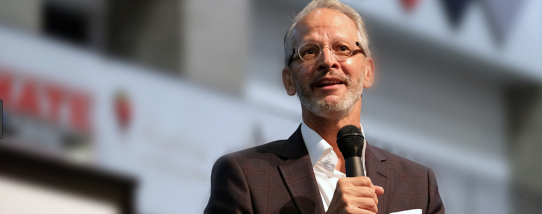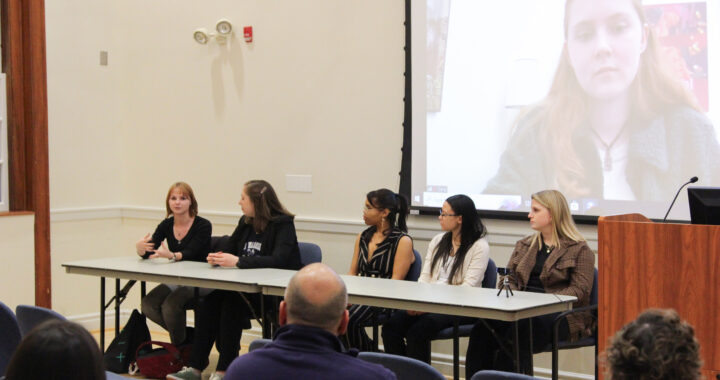President Paino presents proposed 2018-2019 budget
3 min read
umw.edu
By HANNAH ROTHWELL
Staff Writer
On Wednesday, April 11 as a part of the “Can We Talk” student forums, President Paino presented his proposed budget for the 2018-2019 school year to gauge student reactions to proposed tuition increases.
He is proposing an increase of 3 percent for tuition and comprehensive education and general fees, and four percent for Auxiliary Comprehensive fees. That would be an increase of $402 for in-state students and $806 for out-of-state students for the next academic year.
Paino said that money will go to pay for a mandated increase in healthcare for faculty and staff, as well as a raise in faculty salaries, which have remained stagnant over the past few years. Money will also be allocated to enhancing the career and professional development center, increasing accessibility technology for students with disabilities, and servicing debts for campus construction projects.
This increase is higher than inflation, which the Bureau of Labor and Statistics reports fluctuated around 1.5 percent for the Northern Virginia area for the past two years. Although this does outpace inflation, it is still lower than the proposed tuition increase of other Virginia schools. Christopher Newport University and William & Mary are proposing increases of 6 percent or higher for incoming freshmen. Schools like University of Virginia and Virginia Tech are still citing increases of 2-3 percent.
“This is responsible,” said Paino. “Especially since we’re going into this not knowing what we’re getting from the state.”
The Virginia General Assembly has been delayed in deciding how much money to allocate to state schools for the next fiscal year, however the administration wants to present a budget by May 1, the deadline to commit to a college. Financial aid is a highly considered factor for many prospective students in choosing a school, and having a proposed budget by that deadline allows them to get the financial aid information to students as soon as possible.
Former Virginia State Senator and current member of the UMW Board of Visitors Edd Houck was in attendance, and asked the students to share how the price increase would affect them personally. The students brought up issues ranging from taking off semesters to work, the mental health implications of not being able to pay for school, and the potential burden on families.
“Next year I’ll have two daughters in college myself,” said Paino. “I’m aware of the burden this puts on families. This forum is a part of an ongoing effort to be more transparent, and to hear from the students how these decisions affect their lives.”
Of the approximately 10 to 15 students in attendance, many of them felt that it was their duty to represent the views of others who could not be there, but would still be affected by these proposed budgetary changes.
“I chose to attend the meeting because I am involved in a lot of student government organizations, and I feel that it’s a part of my responsibility to make sure that I’m not only going to all of the student events on the calendar, but also that I am representative of those views at these forums” said freshman Alexander Lee.
“I think it’s important to show up, and not only hear what the administration and the faculty have to say, but also what fellow students are saying,” said junior Jordan Seurattan.
Several students brought up their own struggles with financial aid, and the difficulties they already face in paying for college. The administration had representatives from account management and financial aid in attendance, and invited all students to discuss their individual situations one on one after the meeting to ensure that students were supported in their efforts to keep their education affordable.











